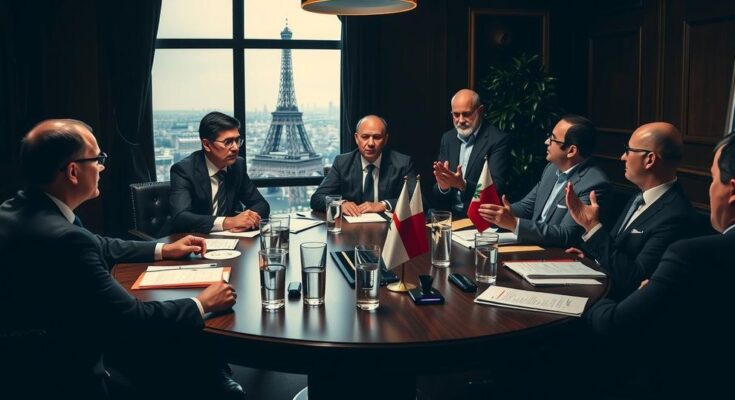French President Emmanuel Macron and Saudi Crown Prince Mohammed bin Salman urged robust steps toward new presidential elections in Lebanon amid ongoing regional crises. Their collaboration aims to unite the Lebanese people and implement essential reforms for national stability post-ceasefire with Hezbollah.
During a three-day visit to Saudi Arabia, French President Emmanuel Macron and Saudi Crown Prince Mohammed bin Salman discussed the necessity for fresh presidential elections in Lebanon. This call for elections follows a recent fragile ceasefire between the Lebanese militant group Hezbollah and Israel. Macron’s office emphasized that these elections aim to unite the Lebanese populace and facilitate essential reforms to enhance the nation’s stability and security.
This statement comes amid a backdrop of escalating tensions in the Middle East, particularly regarding the conflict in Gaza. Macron’s visit signifies France’s continued interest in addressing regional instability and supporting democratic processes in Lebanon. Furthermore, as international powers intensify efforts to alleviate humanitarian crises, the situation in Lebanon remains critical, necessitating the urgent establishment of a functional government.
The impetus for the call for presidential elections in Lebanon arises from ongoing instability and political paralysis in the country. Lebanon has been grappling with a complex crisis, further exacerbated by regional conflicts, including tensions involving Israel and armed groups like Hezbollah. A robust governmental framework is crucial for Lebanon to address its myriad challenges, which include economic decline and social fragmentation. Macron and MBS’s joint call underscores the importance of diplomatic engagement in seeking resolutions to the turmoil in Lebanon and reflects broader international concerns for Middle Eastern stability.
In summary, the joint call by French President Emmanuel Macron and Saudi Crown Prince Mohammed bin Salman for new presidential elections in Lebanon highlights the urgent need for political reform in the country. Their stance reflects a commitment to fostering peace and stability in a region deeply affected by ongoing conflicts. As global entities work to better humanitarian conditions, there is significant pressure to address Lebanon’s leadership void through democratic elections.
Original Source: www.france24.com




